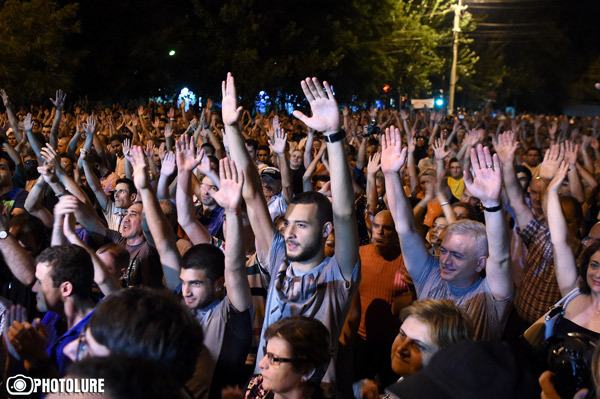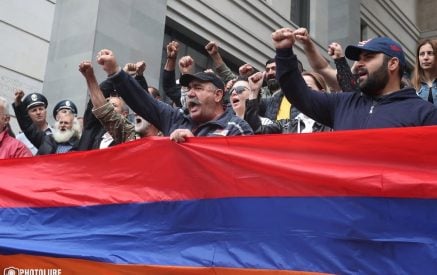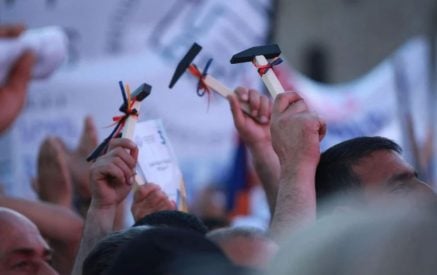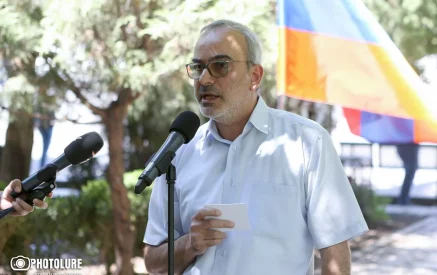The society has been divided into three unequal parts: apologists of militants’ actions (the majority), apologists of police actions (the minority) and sober people (the vast minority). The first two positions are clear that if you accept Alek Yenigomshyan’s explanations about the shooting, wounded and hostages without objections, then you are scum and servant of the regime. If you see “gaps” in the hypothesis of Ashot Aharonyan about the incident, then you are again a scum and justify the crimes committed against the state. But wait a minute … Both are INTERESTED in presenting the events in one way or another, they are conflicting parties. Why should I believe them unreservedly, just because I do not like the authorities or Zhirayr Sefilyan?
It turns out that I should be the supporter of either the armed group that has occupied the SPS regiment or the policemen who beat-crush and “detain” aimlessly. Is one black and the other white? Is it not possible to generally be against violence, irrespective of who has resorted it, generally be against the illegal weapons and the use of it, no matter who they are: Liska’s bodyguards or “Sasna Tsrer”? Generally, being against the solution of the political matters by force, be it on September 25, 1996, the night of April 13, 2004, March 1, 2008, or July 17, 2016. Generally, be in favor of democracy, broad-thinking and forgiveness.
Polish “Solidarnost” had not seized any Police building, nor killing anyone or taken hostage. But it was able to win the communist government enjoying the unreserved support of 1000 times more powerful Soviet Union that today’s Armenian government is. Due to what? Did they demand the resignation of Wojciech Jaruzelski? Not, it was a consequence, it happened automatically. “Solidarnost” and the majority of the Polish people were fighting for the democratization in the country, for universal values and for the sake of their country’s becoming a part of the developed world.
It seems to me that the politicians must orient the masses listening to them just in this way, which they never did it starting from the rallies in 1992. As it is used to say, the “vision” of the society is not formed by talking about obsolete “national liberation” emotions, ardent and scourging speeches, about the consequences rather than causes, and about secondary problems. Without it, it would be a senseless running about in the streets and fruitless debate with the police who has deviated on “apprehending”.
Read also
ARAM ABRAHAMYAN























































